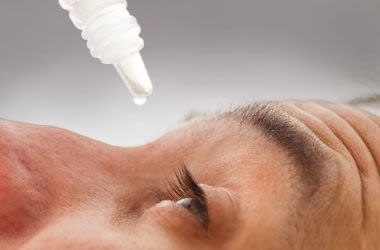In our previous post, we introduced the chronic eye conditions, where we mentioned some underlying causes of the dry eyes condition and how to possibly avoid them.
In this edition, we would continue from where we left it.
Vitamin A deficiency
This Vitamin helps to promote healthy eyes. Foods like carrots, spinach, and eggs have components rich in Vitamin A.
Consuming food that lacks this vitamin often leads to dry eye and may eventually culminate into visual impairments.
A simple blood test can help to diagnose Vitamin A deficiency and your eye doctor can take it up from there.
Mild dehydration
Sometimes, chronic dry eyes can be a result of taking less than enough fluids, a result that can lead to eventual dehydration.
Whenever you pass out dark urine, feel dizziness, or perhaps lack of energy, then you would have to watch out for dehydration.
Try to increase your fluid consumption and most important of all, drink a lot of water.
This will help to mitigate against mild dehydration and subsequently ease the effect of dry eye.
Blepharitis
This is an eye condition that develops when the small oil glands found in the inner eyelid gets inflamed.
As of today, this eye condition has no cure, however, inflammation can get reduced through the application of a warm compress on closed eyes for some minutes and also cleaning the eyelids with some baby shampoo.
Artificial tears can come in use alongside it. If the symptoms persist, try to see your eye doctor who may then prescribe an antibiotic eye drop.
Allergies
Chronic dry eye can also get triggered by allergies. Oral antihistamine can help to reduce allergies.
If individuals experience dry eye symptoms then they can ask their doctors for the antihistamine eye drops.
Sj�gren�s syndrome
This is an autoimmune disorder that leads to the white blood cells attacking the tears and salivary glands, eventually causing a reduction in tear production.
Your eye doctors, in this case, can prescribe lubricating eye drops and also a steroid eye drop.
In a situation that an individual dry eye fails to respond to eye drops, surgery may just be the next available option.
Wind exposure
High winds and exposure to cold climatic conditions can lead to tears evaporating very quickly from the eye.
In this case, the eye can be protected by applying eye drops that can lubricate and also using sunglasses that can protect the eyes.
Smoke
Getting exposed to smokes or smoking by itself can lead to dry eyes.
It is better you avoid a smoky environment and if you are an active smoker, it is highly advisable that you quit smoking.
Conclusion
One of the first steps you might want to take to relieve yourself of chronic dry eye is getting to understand the underlying cause.
This will help reduce the risk that comes with dry eyes.
One of the first steps to relieving chronic dry eye is understanding what�s causing your symptoms.
With medicated eye drops and a few simple lifestyle adjustments, you can make sure your eyes stay lubricated.
This can help reduce your risk of dry eye complications.

